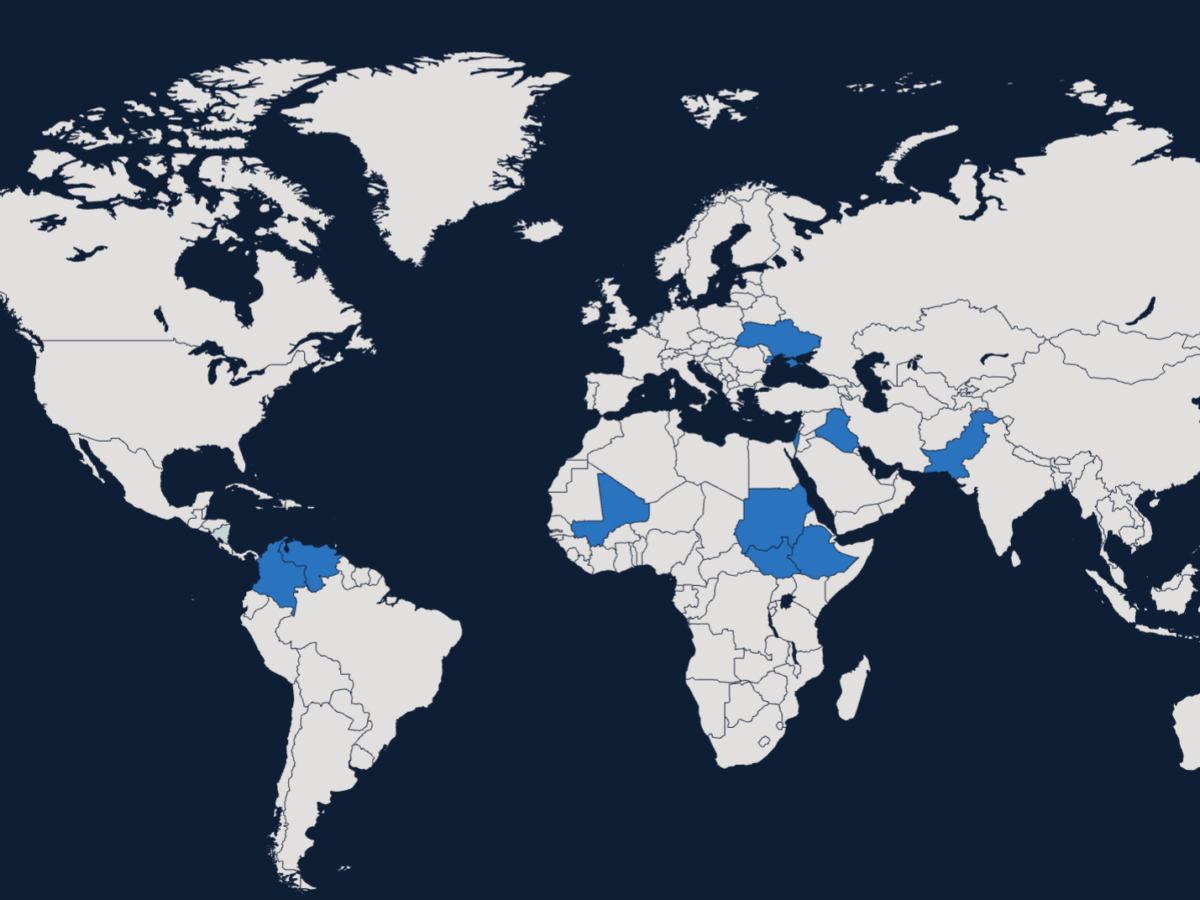Technology-Facilitated Gender-Based Violence
As the uses and abuses of technology develop at a rapid rate, the growing threat and consequences of technology-facilitated gender-based violence (TFGBV) must be addressed by those working to advance the Women, Peace and Security (WPS) Agenda. Existing policies and programs must be adapted and new ones adopted to account for digital dimensions of gender-based violence (GBV) and to keep online spaces safe for women.
Technology has helped advance women’s rights around the world in important ways. Technological tools make education and employment more accessible, and online spaces create new opportunities to build movements and amplify calls for equality and justice. These gains serve the goals of the WPS Agenda, which aims to protect and empower women in conflict-affected contexts. Along with these benefits, however, are substantial costs. Globally, 38 percent of women have reported experiencing TFGBV—including instances of cyber-harassment and stalking, doxxing, and image-based sexual abuse. Further, there are increasing reports of digital tools being used to exacerbate offline violence. For example, sexual assaults of Iranian protesters have been filmed and used to blackmail the protesters, and women in Pakistan have been killed as a result of photoshopped images being posted online.
National governments and international organizations increasingly recognize TFGBV as a pressing issue. Existing research and policies focus on the impact of TFGBV on specific women—primarily, politicians and journalists—with less attention paid to the implications of TFGBV for the WPS Agenda, particularly with regard to protecting women from GBV and promoting their participation in peace processes. Given the scale, scope, and impact of TFGBV, the WPS field must evolve to account for the unique challenges women are facing in an increasingly digitized world.
Based on a comprehensive desk review of existing TFGBV literature, this report explores the linkages between TFGBV and the goals of the WPS Agenda. The first section introduces the WPS Agenda, specifically focusing on its structure and the context for its creation. The next section links TFGBV with the protection goals of WPS, outlining the prevalence of existing types of digital violence and the challenges with addressing them. It further highlights the link between digital and offline violence, demonstrating that protection efforts must account for a continuum of violence. The third section draws out threats TFGBV poses to the participation goals of WPS. It identifies three key dimensions of TFGBV that hinder women’s participation in peace and politics: targeted attacks against prominent women, the “gendered chilling effect” of online violence that discourages women from participating in online spaces, and online radicalization and misogyny.
The fourth and final section highlights four key findings from the report and recommends actions stakeholders can take to integrate TFGBV into WPS efforts.
- TFGBV encompasses a wide range of digital and technological threats
with substantial implications for the online and offline well-being and
security of women and gender-diverse individuals.- Stakeholders should collaborate to create a set of common definitions and terms to accurately and comprehensively describe TFGBV.
- Governments and international organizations should dedicate funding to address TFGBV and prioritize these efforts as part of WPS and broader security initiatives.
- TFGBV exists on a continuum of GBV and can facilitate offline violence in
complex ways.- TFGBV should be integrated into existing regulatory frameworks addressing GBV as well as global initiatives that aim to reduce and end violence against women, girls, and gender-diverse individuals.
- WPS actors and stakeholders must treat TFGBV as seriously as offline GBV, taking steps to integrate prevention and protection measures into programs and policies.
- The use of TFGBV to silence women and discourage them from seeking and holding positions of influence is a significant threat to equal and meaningful participation.
- WPS actors must safeguard against TFGBV when working to promote
women’s participation. - International coalitions must lobby tech companies and the private sector
to ensure consistent standards of regulation and enforcement around the
world.
- WPS actors must safeguard against TFGBV when working to promote
- Online misogyny and TFGBV are key drivers of radicalization and violent
extremism and are used as recruitment tactics by groups that support
rollbacks of women’s rights.- WPS policies in the context of countering violent extremism must recognize
TFGBV as a gateway to radicalization and tool to incite violence. - Governments and international organizations should dedicate funding to
interventions focused on preempting radicalization of men and boys in
online spaces and supporting deradicalization efforts.
- WPS policies in the context of countering violent extremism must recognize
Download the full report here.
Author
- Kristine Baekgaard, 2023-2024 Hillary Rodham Clinton Fellow, Georgetown Institute for Women, Peace and Security
Adapting NATO’s WPS Strategy for the Rise of Technology-Facilitated Gender-Based Violence
Explore More

Conflicts and Trends to Watch in 2026

Women, Peace, and Security Shadow Report to Congress: What Was Built, What…
